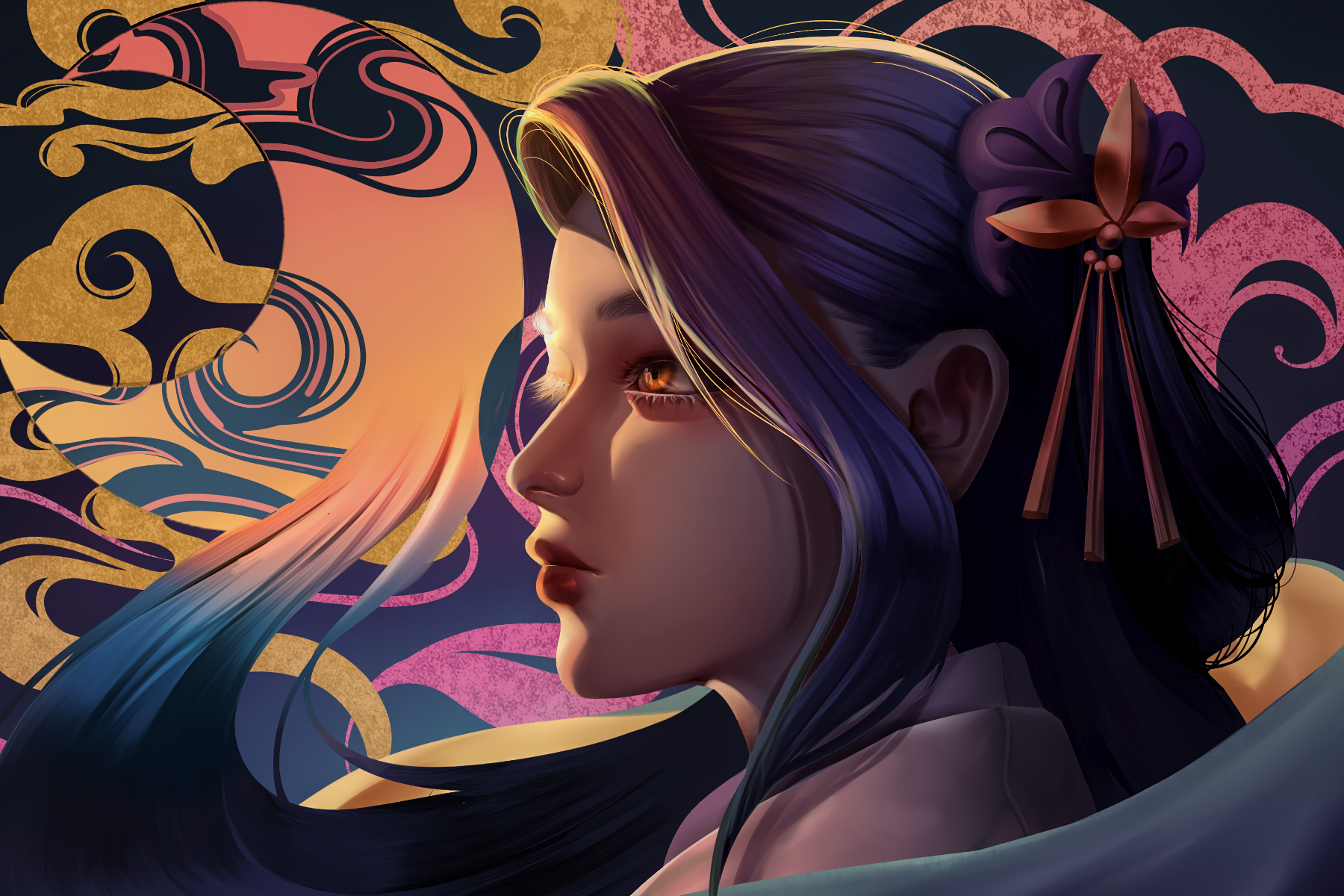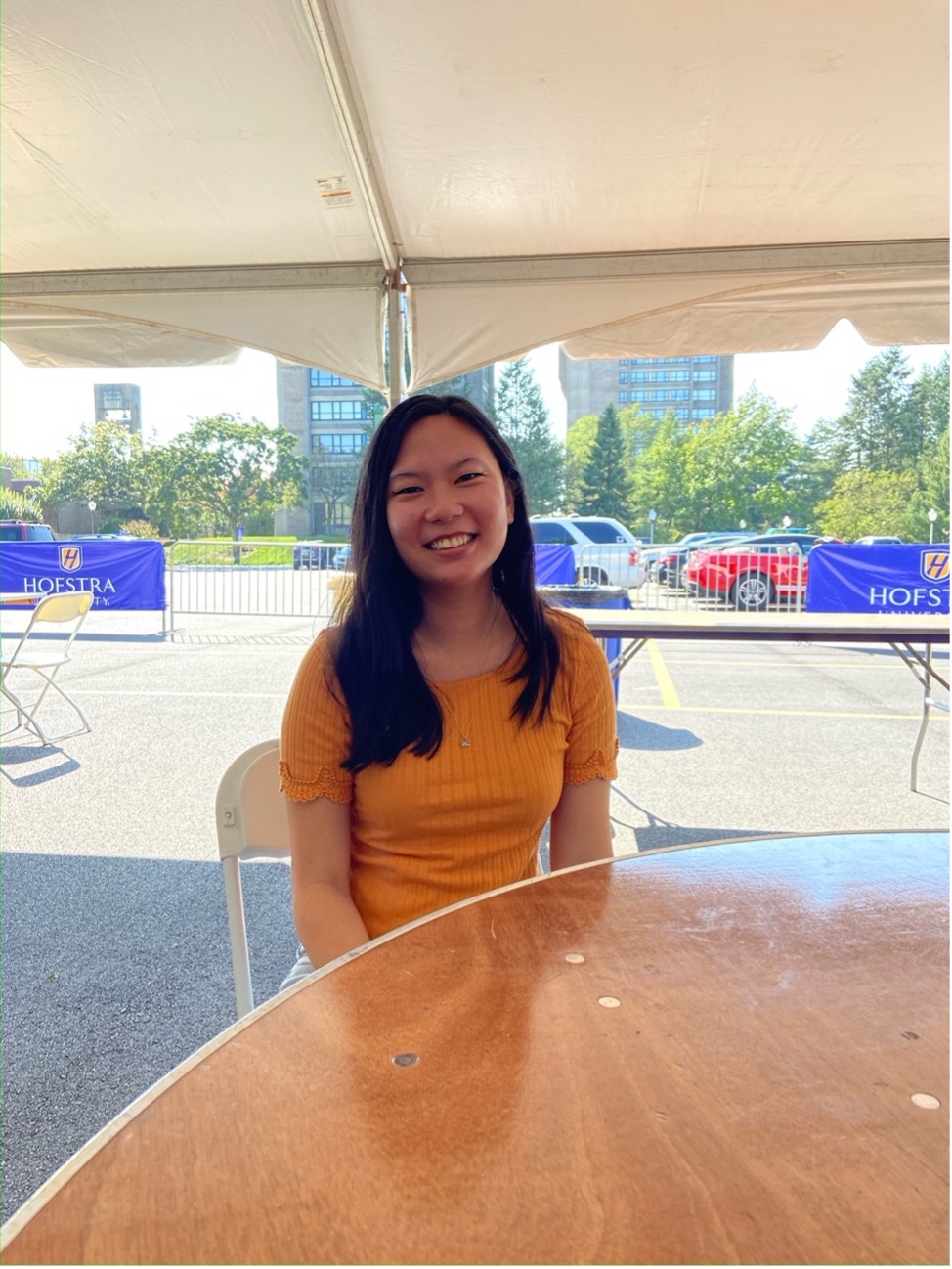“Daughter of the Moon Goddess” by Sue Lynn Tan is a beautiful story full of whimsy, intrigue and romance. Tan’s debut fantasy novel is based on the legend of Chang’e, the Chinese moon goddess. The plot follows Xingyin, who has spent her entire life isolated on the moon because her mother was exiled by the Celestial Emperor after she stole his elixir of immortality. When Xingyin’s powers are revealed, which in turn reveals her existence, she must leave her mother and go out into the world alone. She does so in despair, vowing to one day safely return when she’s earned her mother’s freedom.
Given the opportunity to learn alongside the emperor’s son as his servant in the Celestial Kingdom, Xingyin has harnessed her powers, developing her skills as a fine archer, yet finds it harder and harder to conceal her identity as her feelings grow for the prince. Eventually, however, when she finds herself in the position to win back her mother’s freedom — all she has ever wanted — it comes at the price of her safety, as she must battle the kingdom’s traitors and deadly creatures, while also severing all ties to the prince.
“Daughter of the Moon Goddess” is the first novel in the intended duology, meaning all the loose ends prompted by the ending of book one will be tied up in the pending sequel. Furthermore, the love triangle between Xingyin, Prince Liwei and Captain Wenzhi will be developed further and resolved. “Daughter of the Moon Goddess” effectively illustrates the tension between all three characters without evoking the feel of cliche tropes present in many young adult novels.
Prince Liwei is considerate and is also the first person outside of Xingyin’s family to show her unadulterated kindness. He disagrees with his parents about their often-cruel choices, wishing to leave behind a softer legacy. As Liwei’s servant, Xingyin has gotten to know him well, and they share a genuine friendship. However, he seems to be the unobtainable choice, as his parents have trapped him in an engagement to solidify a political alliance and were also the ones responsible for Xingyin’s mother’s predicament.
Then there is Captain Wenzhi, the stoic, tough leader of the Celestial Kingdom’s army. His only goal is to make Xingyin the best archer and wielder of magic she can be, so when he reveals that he has feelings for her, it surprises and flatters her. She is grateful to him for guiding and instructing her. Despite her strong bond with Liwei, Xingyin knows that Captain Wenzhi is the more plausible choice since he can provide Xingyin with safety and a solid life of honor. Xingyin is inevitably torn, feeling something for both men — despite their many differences.
While this love triangle is present, it is not the main plot of “Daughter of the Moon Goddess.” The novel paints a beautiful picture of Chinese mythology while telling a contemporary story with relatable characters whose struggles and feelings a YA audience can empathize with. Above all else, Xingyin yearns to free her mother from her forced isolation. Her fierce love and devotion to her mother are what make her a strong, admirable protagonist.
Years pass before Xingyin can bargain for her mother’s freedom, years in which she bides her time, working her way up to becoming a respected and skilled archer to strategically ask a favor from the Celestial Emperor and Empress. While Xingyin is strong, she is also soft. She understands all too well the choices that must be made in the interest of survival, but she refuses to sacrifice her humanity. It is her big heart that allows her to triumph again and again.
Reading books written by Asian authors is one way everyone can support the Asian community. Since the start of the global COVID-19 pandemic in March 2020, it is now more important than ever to be intentional about supporting and uplifting people of Asian descent. Deeply disturbing, violent acts have been committed against the Asian community. Asian hate stems from racist ideals regarding the virus having originated in Wuhan, China.
“Daughter of the Moon Goddess” is also based on Asian culture, which is one of the many reasons I was drawn to reading this novel. Tan was born in Malaysia and lived in London and France before residing in Hong Kong with her family. “Daughter of the Moon Goddess” is her debut novel, one that provides an escape to a fantastical world where betrayal and love are found in equal measure. Tan writes with lush, descriptive prose. Her depictions of food and scenery are rich and gorgeous. I felt transported to a breathtaking realm while reading this novel and am excited about the sequel.
There have been numerous successful attempts to highlight the works of Asian people, both before the pandemic and during, indicating that progress is being made. Released in 2018, the romantic comedy-drama “Crazy Rich Asians,” based on the bestselling novel of the same name by Kevin Kwan, became immensely popular. Directed by Jon M. Chu, the film is about an NYU professor who finds out her boyfriend’s family is one of the wealthiest in Singapore. “Crazy Rich Asians” featured an all-Asian cast, which was groundbreaking.
Other recent notable events to celebrate regarding the Asian community are the first-ever Asian American to be Oscar-nominated for best actor in 2021, Steven Yeun, and the first Asian superhero appearing in the Marvel Cinematic Universe in 2021: Shang-Chi, portrayed by Simu Liu. Yeun played a Korean immigrant in Lee Isaac Chung’s “Minari”, which was based on the story of Chung’s own family. On his part, and before his career as an actor took off, Liu prophetically tweeted to Marvel in 2014, “Now how about an Asian American hero?”
Asian representation matters, in all forms. While advocacy for social justice is powerful and necessary, one can support people of color in their everyday lives simply by engaging with their work. There are countless other incredible stories written by Asian authors just waiting to be sought out and read. “Daughter of the Moon Goddess” is just one of many with an awesome story for lovers of fantasy, romance, immortal beings and ancient legends.

















